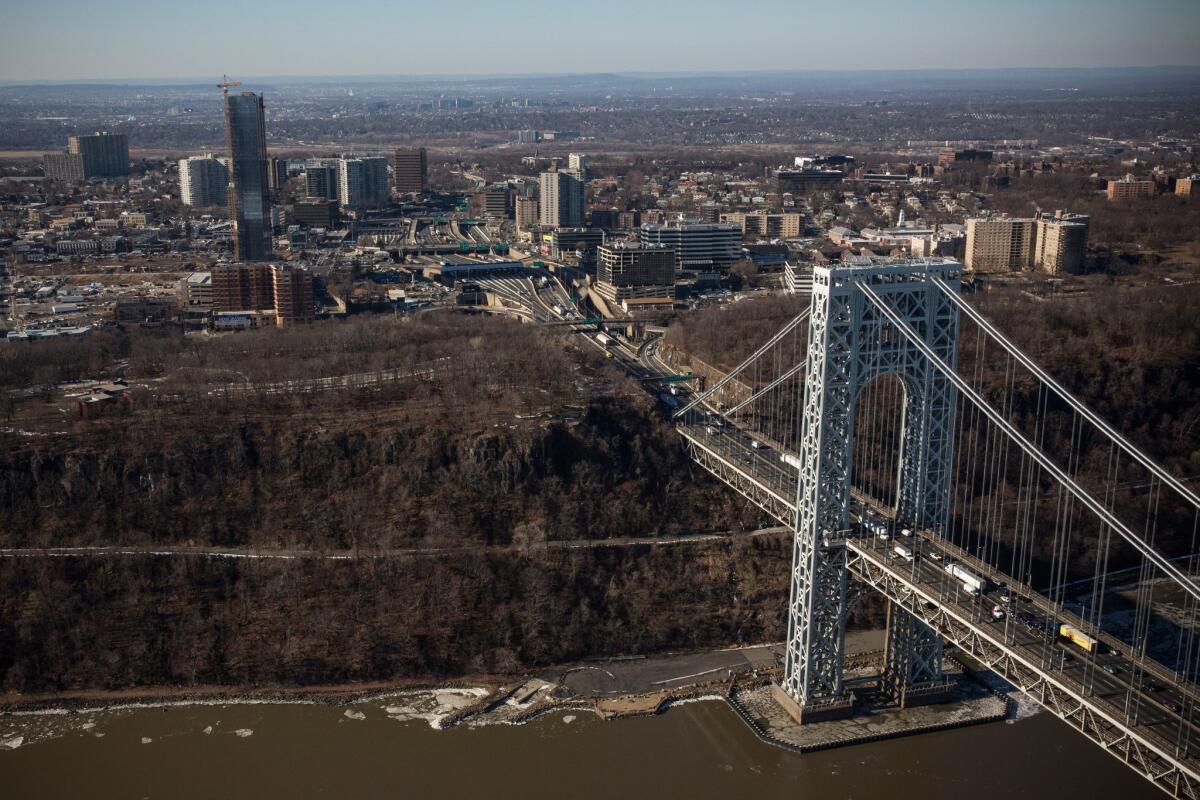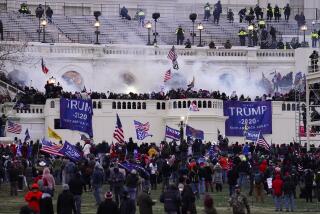Unanimous Supreme Court overturns New Jersey ‘Bridgegate’ fraud convictions

WASHINGTON — The Supreme Court on Thursday unanimously threw out fraud convictions against former aides to then-New Jersey Gov. Chris Christie in the so-called Bridgegate scandal, ruling that the political staffers had not schemed to take the government’s money or property.
The decision is the latest in which the high court has narrowed the scope of federal laws on public corruption.
In this case, unlike some others, there was no evidence that aides to Christie personally profited from the scheme. Instead, they were convicted of plotting to embarrass a Democratic mayor of Fort Lee by closing off two of the three toll lanes leading local traffic on to the George Washington Bridge, causing an epic backup. Christie, a Republican, was seeking reelection in 2013, and his aides were trying to pressure as many Democrats as possible to endorse him, but the mayor of Fort Lee had refused.
While Christie was not charged with a crime, Bridget Kelly and Bill Baroni were fired and then were prosecuted. U.S. attorneys charged them with fraud under federal law, which requires proof that someone lied or schemed to obtain money or property. In this instance, prosecutors said, Kelly and Baroni essentially took over two of the three lanes of the bridge.
The Supreme Court rejected that theory and ruled their conduct was not a scheme to obtain property.
Justice Elena Kagan, speaking for the court, said the justices had made clear in the past that the anti-fraud laws did not include what was called “honest services fraud,” which covered allegations that local or state officials had abused their power.
“Save for bribes or kickbacks (not at issue here), a state or local official’s fraudulent schemes violate that [fraud] law only when, again, they are ‘for obtaining money or property,’” she said in Kelly vs. United States.
She described the realignment of the lanes as as “quintessential exercise of regulatory power,” not a scheme to take the government’s property.
“Contrary to the government’s view, the two defendants did not ‘commandeer’ the bridge’s access lanes (supposing that word bears its normal meaning). They (of course) did not walk away with the lanes; nor did they take the lanes from the government by converting them to a non-public use. Rather, Baroni and Kelly regulated use of the lanes, as officials responsible for roadways so often do — allocating lanes as between different groups of drivers.”
She said the prosecutions were driven by the concern that Christie’s aides had schemed and then lied about what they had done. The aides said the realignment of the lane was part of a traffic study, not a scheme to punish the governor’s political opponents.
Kagan said such schemes may be “political payback” and “an abuse of power,” but that did not convert them into crimes of fraud. “If U. S. attorneys could prosecute as property fraud every lie a state or local official tells in making such a decision, the result would be ... a sweeping expansion of federal criminal jurisdiction,” she said.
More to Read
Get the L.A. Times Politics newsletter
Deeply reported insights into legislation, politics and policy from Sacramento, Washington and beyond. In your inbox three times per week.
You may occasionally receive promotional content from the Los Angeles Times.











